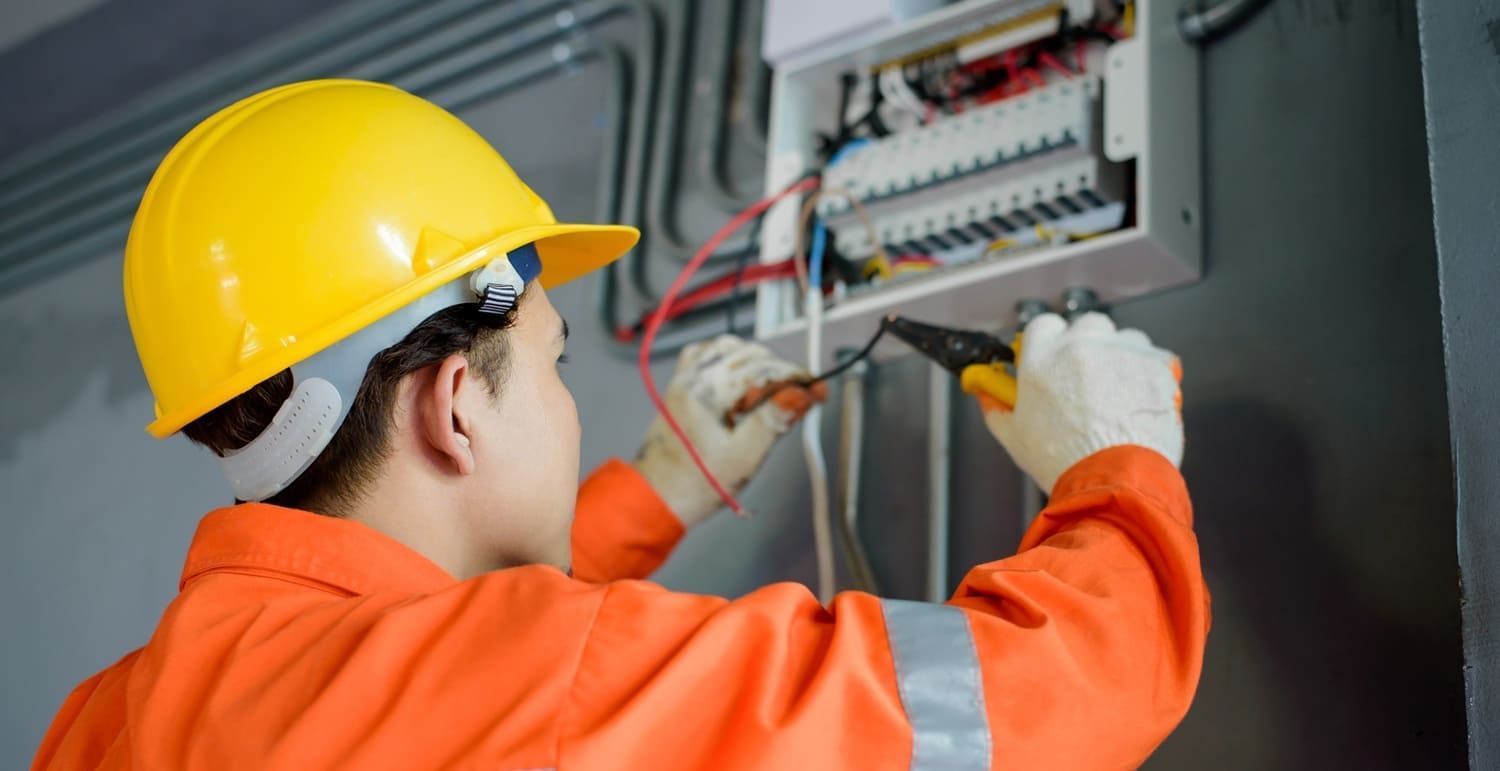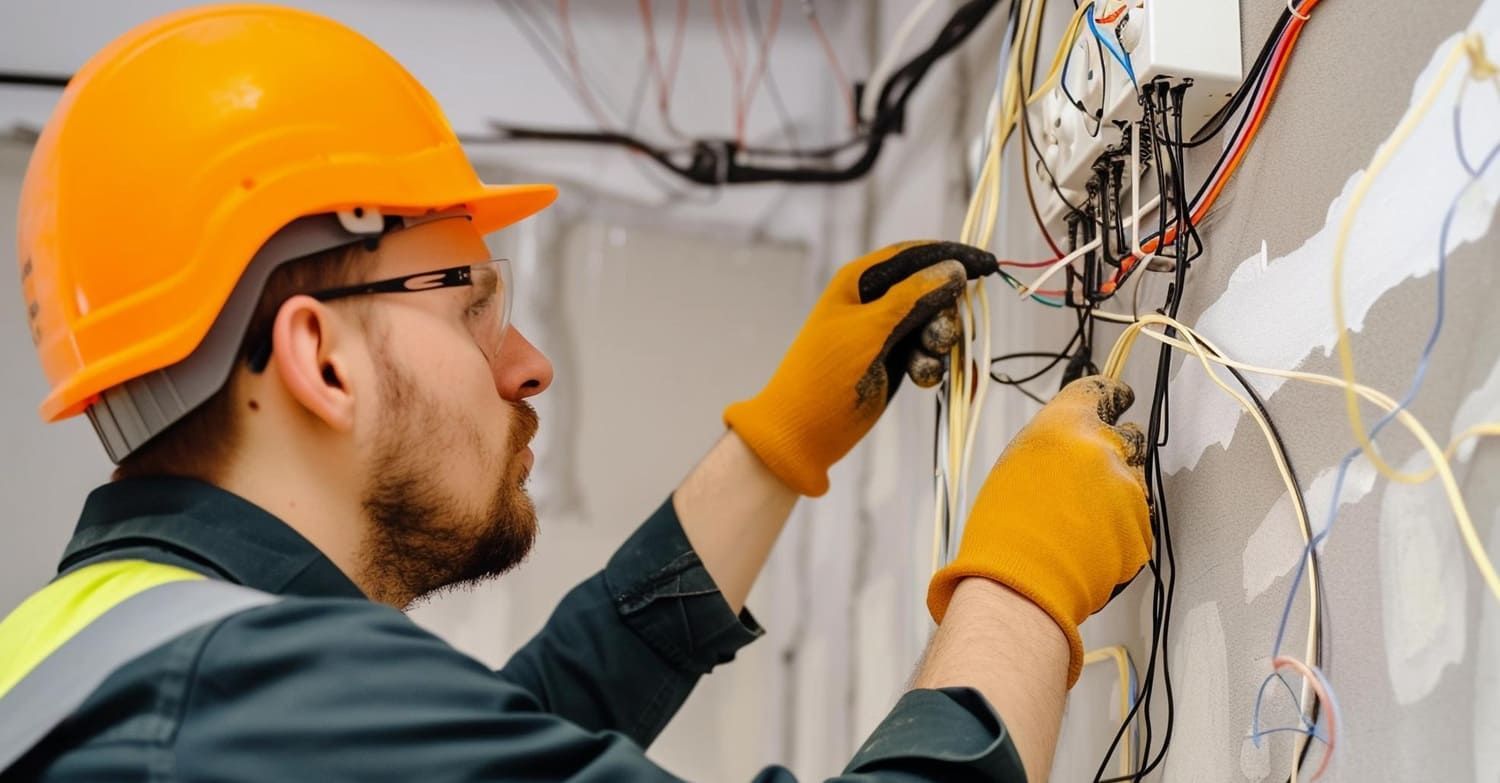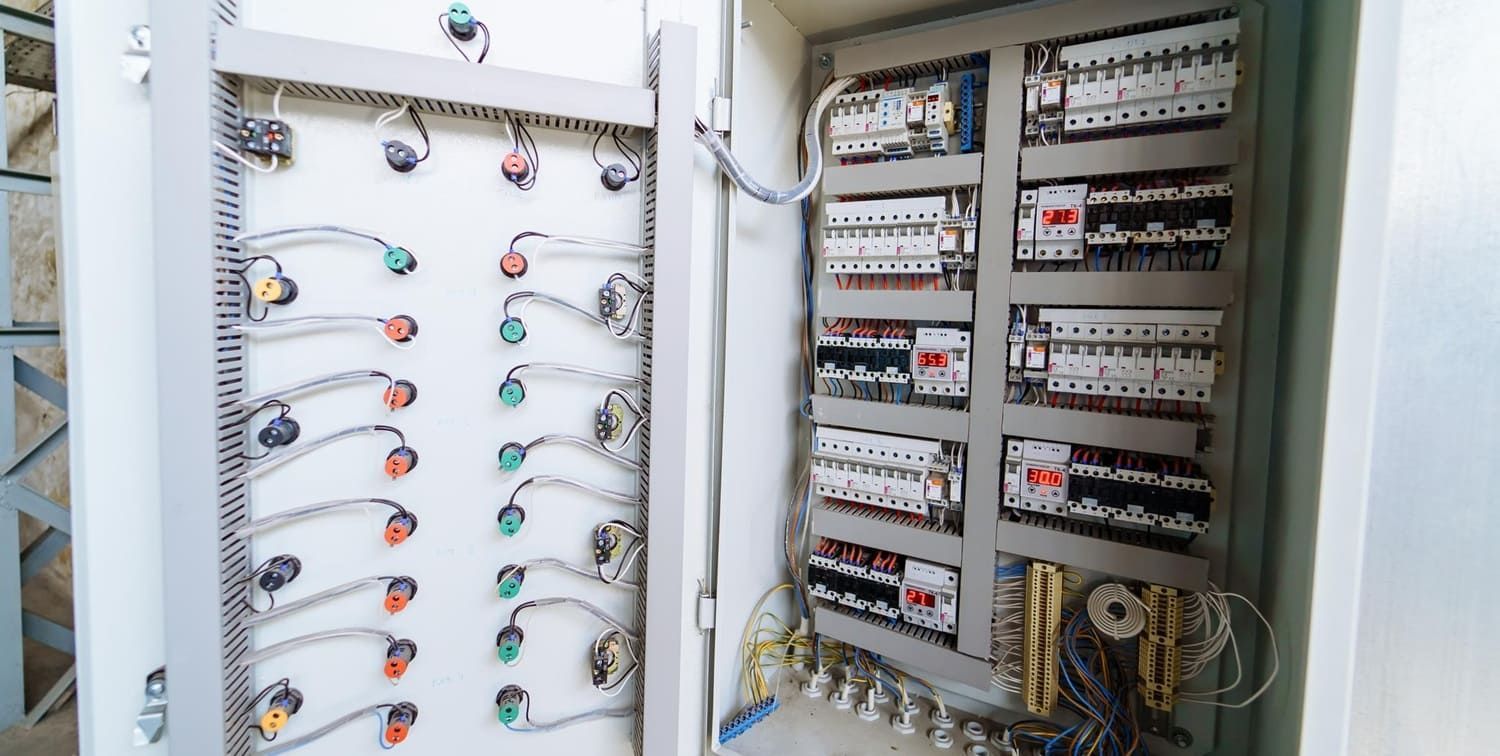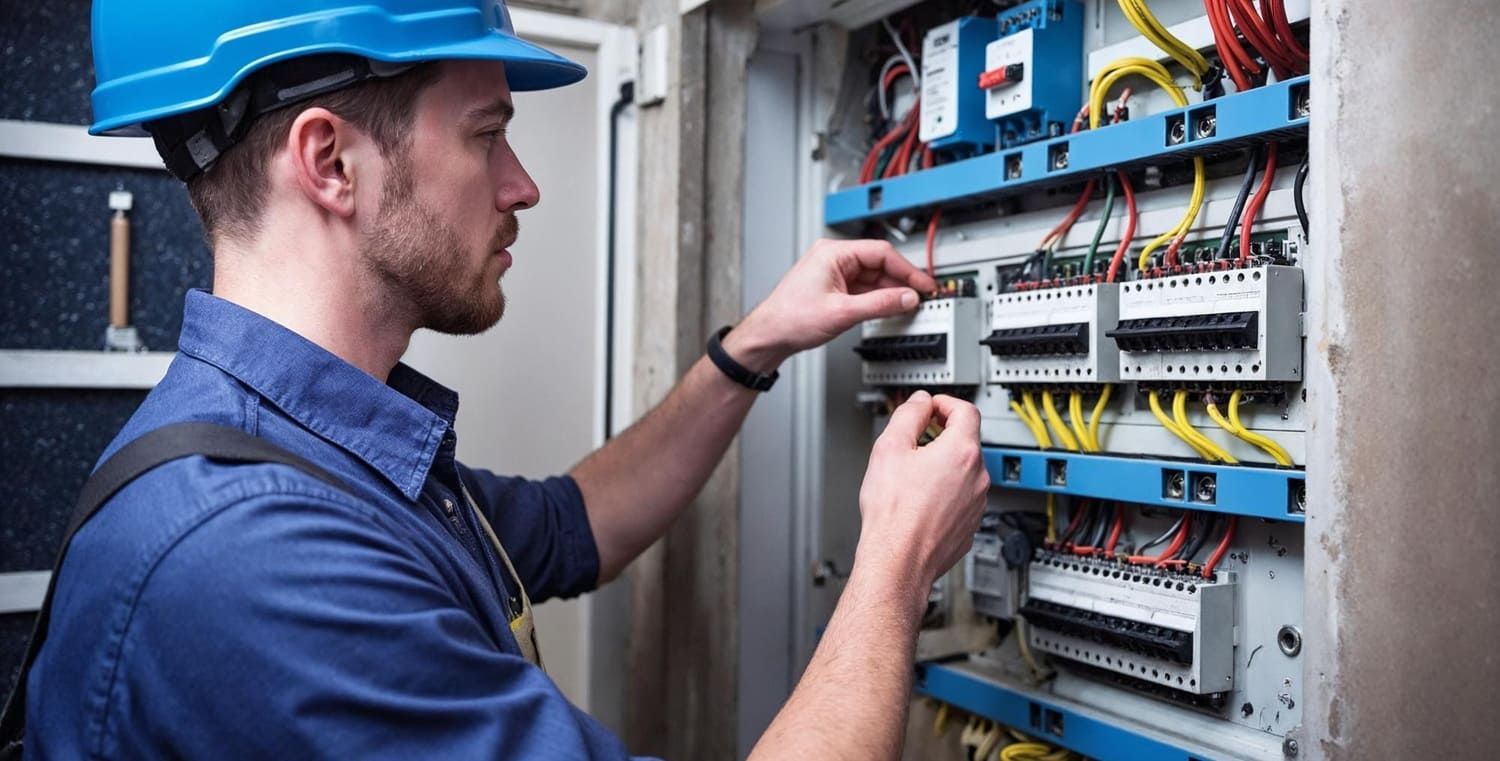Licensed Electricians vs. Handymen: Who to Hire?
What Does a Licensed Electrician Do?
Licensed electricians are trained professionals specializing in the intricate world of electrical systems. Their journey to becoming licensed involves rigorous training and testing, ensuring they are equipped to handle complex electrical tasks safely and efficiently. This expertise is not just limited to basic wiring but extends to:
- Installing and maintaining sophisticated wiring and electrical systems in residential, commercial, and industrial settings.
- Troubleshooting electrical issues, identifying potential problems before they become significant concerns.
- Ensuring compliance with local, state, and national electrical codes, which evolve to incorporate new safety standards and technologies.
- Performing thorough inspections to ensure all work meets the highest safety standards, thereby protecting your property and its occupants.
The path of a licensed electrician often includes years of experience, with continued education mandated to keep them abreast of the latest advancements in electrical safety and technology. This ongoing learning is crucial as it enables them to adapt to technological advancements and adhere to evolving safety codes.
What Services Does a Handyman Offer?
Handymen are versatile workers skilled in a wide range of repair and maintenance tasks. Their ability to handle diverse tasks around the home or business makes them invaluable for various projects. Their skills often encompass:
- Minor electrical repairs, such as replacing light bulbs or installing simple fixtures.
- Basic plumbing tasks like fixing leaks or replacing faucets, which do not require specialized plumbing licenses.
- Carpentry projects, including furniture assembly or repairing wooden structures.
- Painting and other home beautification projects that require attention to detail.
- General maintenance tasks that keep a property in good condition, from gutter cleaning to drywall repair.
While handymen are indeed versatile, it's essential to acknowledge that they might not possess the specific training or licensing required for more complex electrical tasks. Understanding the boundaries of a handyman’s skill set is crucial, especially when electrical safety is a concern.

Key Differences Between Electricians and Handymen
Training and Certification
A significant difference between licensed electricians and handymen lies in the level of training and certification required. Electricians undergo extensive educational programs, often starting with apprenticeships that provide hands-on experience. This training culminates in a licensing exam that evaluates their technical knowledge and ability to perform a wide range of electrical tasks safely.
In contrast, handymen do not require formal certification, although many are highly skilled in various trades. However, their lack of specialized training in electrical systems means they may not be equipped to handle complex electrical work. This gap in training can affect both the quality and safety of the work performed, making it critical to assess the nature of the task before deciding who to hire.
Safety and Compliance
Safety is paramount when it comes to electrical work, and this is where licensed electricians have a distinct advantage. They are well-versed in both local and national electrical codes, ensuring their work meets stringent safety standards. Moreover, licensed electricians typically carry insurance, offering an added layer of protection for both themselves and their clients in the event of accidents or damages.
On the other hand, handymen may not have the same level of familiarity with electrical codes and regulations, potentially resulting in work that doesn’t meet safety standards. Additionally, if a handyman is not insured, any accidents or damages incurred during the job could become your financial responsibility, underscoring the importance of verifying insurance before hiring.
Cost Considerations
Cost is often a significant factor when deciding between a licensed electrician or a handyman. Generally, handymen charge lower rates than electricians, which can be appealing for minor repairs and maintenance tasks. However, opting for a handyman for electrical work could lead to higher costs in the future if the job is not performed correctly and requires rework or leads to safety issues.
Licensed electricians may charge more upfront, but their expertise and adherence to safety standards can prevent costly mistakes, ensuring the job is done right the first time. This initial investment can save money, time, and stress in the long term, especially when dealing with complex or critical electrical tasks.
When to Hire a Licensed Electrician
Complex Electrical Work
For complex electrical tasks, such as installing new wiring systems, upgrading electrical panels, or troubleshooting significant electrical issues, hiring a licensed electrician is the best course of action. Their specialized training and experience ensure the job is completed safely, efficiently, and in compliance with all relevant codes and regulations.
Ensuring Compliance
If your project requires adherence to local electrical codes, a licensed electrician is your best choice. They possess the knowledge and expertise to ensure your electrical work meets all necessary regulations, safeguarding both the occupants of the property and the property itself from potential hazards.
Peace of Mind
Hiring a licensed electrician provides peace of mind, knowing that the work is carried out by a trained professional who prioritizes safety and quality. This assurance is invaluable, particularly when the work involves complex systems that could pose a risk if not handled correctly.

When a Handyman Might Suffice
Small Repairs and Maintenance
For minor electrical repairs, such as fixing a broken light switch or installing a ceiling fan, a handyman may be able to handle the task efficiently and at a lower cost. These tasks typically do not require the specialized training and certification of a licensed electrician, making a handyman a suitable and budget-friendly choice.
General Home Maintenance
If you have a list of general maintenance tasks that include minor electrical work, hiring a handyman can be a cost-effective solution. Their ability to handle various tasks around the house makes them ideal for managing a to-do list of small projects that don't necessarily require specialized expertise.
Budget Constraints
If your budget is tight and the electrical work needed is minor, a handyman might be a suitable option. However, it is crucial to verify their experience with electrical tasks and ensure they have the necessary insurance to protect against any potential issues during the work.
Making the Right Choice
When deciding between a licensed electrician and a handyman, consider the complexity of the task, your budget, and—most importantly—the safety and compliance requirements. At Buell Electric, Inc., proudly serving Pinellas County, Hillsborough County, and Pasco County, including cities such as Tampa, Clearwater, Saint Petersburg, Largo, Port Richey, New Port Richey, Seminole, Tarpon Springs, Hudson, Holiday, Lutz, Pinellas Park, Belleair Beach, Dunedin, Oldsmar, Ozona, Elfers, Bay Pines, Crystal Beach, Safety Harbor, Odessa, Clearwater Beach, Westchase, Citrus Park, Town 'n' Country, and surrounding Florida areas, we deliver licensed, professional electrical services you can trust.
For complex or safety-critical electrical work, a licensed electrician is always the safest and smartest choice. Our certified team ensures strict adherence to all codes, safety standards, and regulations—providing peace of mind that the job is done right the first time. For simpler, non-critical repairs, a handyman might be more affordable, but the risk of shortcuts or improper work is much higher.
At Buell Electric, Inc., we prioritize safety, reliability, and top-tier service. Contact us today for your free estimate and let our licensed experts handle your electrical needs with precision and care.
Electrical work isn’t something to take lightly. Investing in professional service now can save you time, money, and stress down the line—while keeping your home or business safe and up to code.















